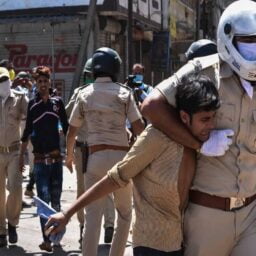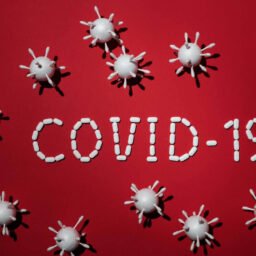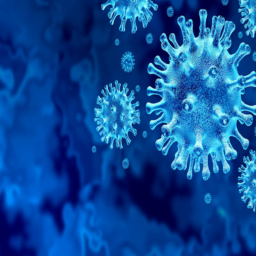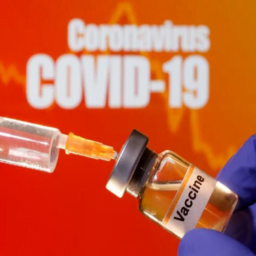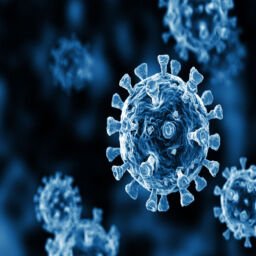
CURRENT COVID-19 CRISIS IN INDIA
On 3rd January 2021, the Drugs Controller General of India approved AstraZeneca’s Covishield and Bharat Biotech’s indigenously developed Covaxin for emergency usage. It came as a much-awaited ray of hope for all Indians. There was an aura of positivity, as one could expect things to get better than they had been in the past nine months. Unfortunately, the 2nd wave of COVID-19 struck in 2021. The current situation of the pandemic in India is nothing short of a horrific humanitarian crisis – perhaps the worst the country has witnessed in the past century. The healthcare system is overwhelmed. Once again, the need for lockdowns is apparent. There is a great hue and cry for oxygen cylinders, hospital beds, vaccine jabs, essential drugs, oxygen concentrators in almost every state and every social media platform. The hoarding and black marketing of these requirements is another shocking reality. Many of these drugs have fake counterparts in the market being used to hoax customers. According to the WHO’s weekly epidemiological report, “India accounts for over 90% of both cases and deaths in the region, as well as 46% of global cases and 25% of global deaths reported in the past week”. The current death toll is over two lakhs coupled with an average of 3000 deaths since the last ten days.
DEVELOPMENTS IN THE LAST MONTH
After much criticism and constant pushing, on 19th April 2021, the Central Government announced vaccination for all above 18 years of age to speed up Phase 3 of the inoculation drive. However, at the grass-root level, the reality is not so optimistic as of now. States that have started vaccinating people between 18 and 44 years include Delhi, Maharashtra, Gujarat, Jammu and Kashmir, Karnataka, Odisha, Rajasthan, Uttar Pradesh, Punjab, Haryana, and a few more. However, the focus in most of these states is limited to a few districts. Some states could not kick-start the drive from 1st May owing to a shortage of stock. In others, people aged 45+ who had already taken one shot could not get the 2nd dose on time. Only about 2% of Indians have been fully vaccinated so far. India is the second-most populous country in the world. One can only imagine the time it would take to vaccinate the entire population.
The state governments have constantly claimed a shortage in the supply of vaccines, drugs, and medical oxygen. While several High Courts had been conducting hearings on pandemic-related issues, the Supreme Court on 22nd April took suo moto cognizance of key issues related to the COVID-19 situation in the country, which included shortage in oxygen supply. A Special Bench comprising Justices DY Chandrachud, LN Rao, and SR Bhat asked Solicitor General- Tushar Mehta to explain why the Centre had not explored granting compulsory licenses to other pharma companies for manufacturing COVID treatment drugs to tackle the emergency.[1] Seven Indian companies- Cadila Health Care, Cipla, Dr. Reddy’s Laboratories, Hetero Labs, Jubilant Pharma, Mylan, and Sun Pharma are producing Remdesivir aided by a non-exclusive voluntary licensing agreement with Gilead Sciences, USA. Despite that, the supply is falling low and the prices are still high. Compulsory Licensing and Voluntary Licensing are two weapons that can ensure universal access and adequate supply of COVID-19 treatment drugs and vaccines.
COMPULSORY LICENSING OF COVID-19 TREATMENT DRUGS
The concept of compulsory license has been defined under Section 84, Chapter XVI of the Indian Patents Act, 1970 (IPA).[2] Section 92 of the IPA is a special provision that authorizes the Central Government to issue a notification regarding the grant of compulsory license in the Official Gazette. The conditions that govern such a step involve satisfaction of a case of national emergency, extreme urgency, or public non-commercial use. Following this, manufacturers willing to produce the patented drug (in this case) can apply for a license to the Controller General who has the power to decide the terms of agreement and grant applicants the license to produce generic versions of the patented drugs.[3] Additionally, Section 87 of the IPA that lays the procedure followed while granting a compulsory license is also non-applicable in times of public health crisis.[4]
Such a grant would increase the affordability of the public and simultaneously ensure the patentee a reasonable license fee, serving the interest of both the stakeholders. Besides, the increase in production without going through procedural hassles would generate sufficient supply entailing the larger public good in these difficult times. Granting compulsory licenses allowing the production of such critical drugs for a limited time will help the nation considerably to overcome the uncontrollable wave. Countries like Israel, Chile, and Canada have also resorted to measures facilitating compulsory licensing of COVID-essential drugs.[5] On 9th March 2012, India granted the first compulsory license to Natco Pharma for the generic production of Bayer Corporation’s Nexavar, a life-saving medicine used for treating Liver and Kidney Cancer, when Bayer failed to sell it at a reasonably affordable price.
VOLUNTARY LICENSING OF COVID-19 VACCINES
Compulsory licensing of vaccines is another idea the government may have to deliberate if the patentee is unwilling to enter into reasonable licenses for the adequate supply of the vaccine at reasonable rates.[6] In other words, issuance of a compulsory license may not be the best way to go ahead owing to numerous factors like reduced investments in further research and innovation. A middle ground could be the Voluntary Licensing of vaccines through which a patent holder authorizes a third party to manufacture and sell the patented product on mutually beneficial terms.[7]
Covaxin is an indigenous vaccine developed by Bharat Biotech (Hyderabad), the Indian Council of Medical Research (Delhi), and the National Institute of Virology (Pune). Currently, it is the sole candidate in the Indian market eligible for voluntary licensing since its intellectual property rights lie with the Government of India considering the involvement of public money in R&D.[8] This would benefit all stakeholders as a bulk production would expedite the supply sufficing the unabated demand and increase affordability at the same time, ultimately fast-tracking the vaccination drive to a pace that the current situation demands. Additionally, the patent holders would be eligible for a license fee at a rate determined by themselves and the manufacturers instead of a possibly lower royalty set by an adjudicating authority in the case of compulsory licensing.[9]
On 15th April 2021, the Central Government permitted the Mumbai-based Haffkine Institute to manufacture Covaxin on a technology transfer basis for one year. That is one small step in the positive direction. However, stopping there isn’t enough. The vaccine crisis is evident and clearly, India’s inoculation strategy is failing to prove effective. Therefore, if the entire population of India is to be vaccinated speedily, more manufacturers need to be granted a voluntary license. Only then can we think of overcoming the pandemic sooner.
CONCLUSION
The need of the hour is to strike a balance between public welfare and the intellectual property rights associated with life-saving drugs and vaccines. The previously mentioned mechanisms aim to do just that. The solution to most of the problems lies in them. The way forward also has implications for similar unpredictable happenings in the future. It is a crisis that the world can overcome if it unites against the common enemy, the virus, because as the WHO Director, Dr. Tedros Adhanom Ghebreyesus, said at the Virtual Health Forum in June 2020, “None of us are safe until all of us are safe”.
Author(s) Name: Khushi Agrawal (Christ University, Bengaluru)
References:
[1] In Re: Distribution of Essential Supplies and Services During Pandemic, 2021 SCC OnLine SC 339 (India).
[2] The Patents Act, 1970, No. 39, Sec. 84 (India).
[3] The Patents Act, 1970, No. 39, Sec. 92 Cl. 1 (India).
[4] The Patents Act, 1970, No. 39, Sec. 87 (India).
[5] Ansh Singh Luthra, Politics, Pharma, Patent, Profit or the People of India? A case for compulsory licensing, Bar And Bench (May 1, 2021, 1:11 PM), https://www.barandbench.com/columns/patents-covid-19-drugs-case-for-compulsory-licensing.
[6] Ajay Bhargava et al., Compulsory Licensing amidst the Covid-19 Pandemic, LEXOLOGY (July 16, 2020), https://www.lexology.com/library/detail.aspx?g=253ff273-55fb-46cf-9331-04d632ac055e.
[7] Prabhash Ranjan, Voluntary licensing of Covaxin will boost vaccine production, HINDUSTAN TIMES (May 4, 2021, 5:52 PM), https://www.hindustantimes.com/opinion/voluntary-licensing-of-covaxin-will-boost-vaccine-production-101620130941033.html.
[8] Ibid.
[9] Bhargav, supra note 6.


